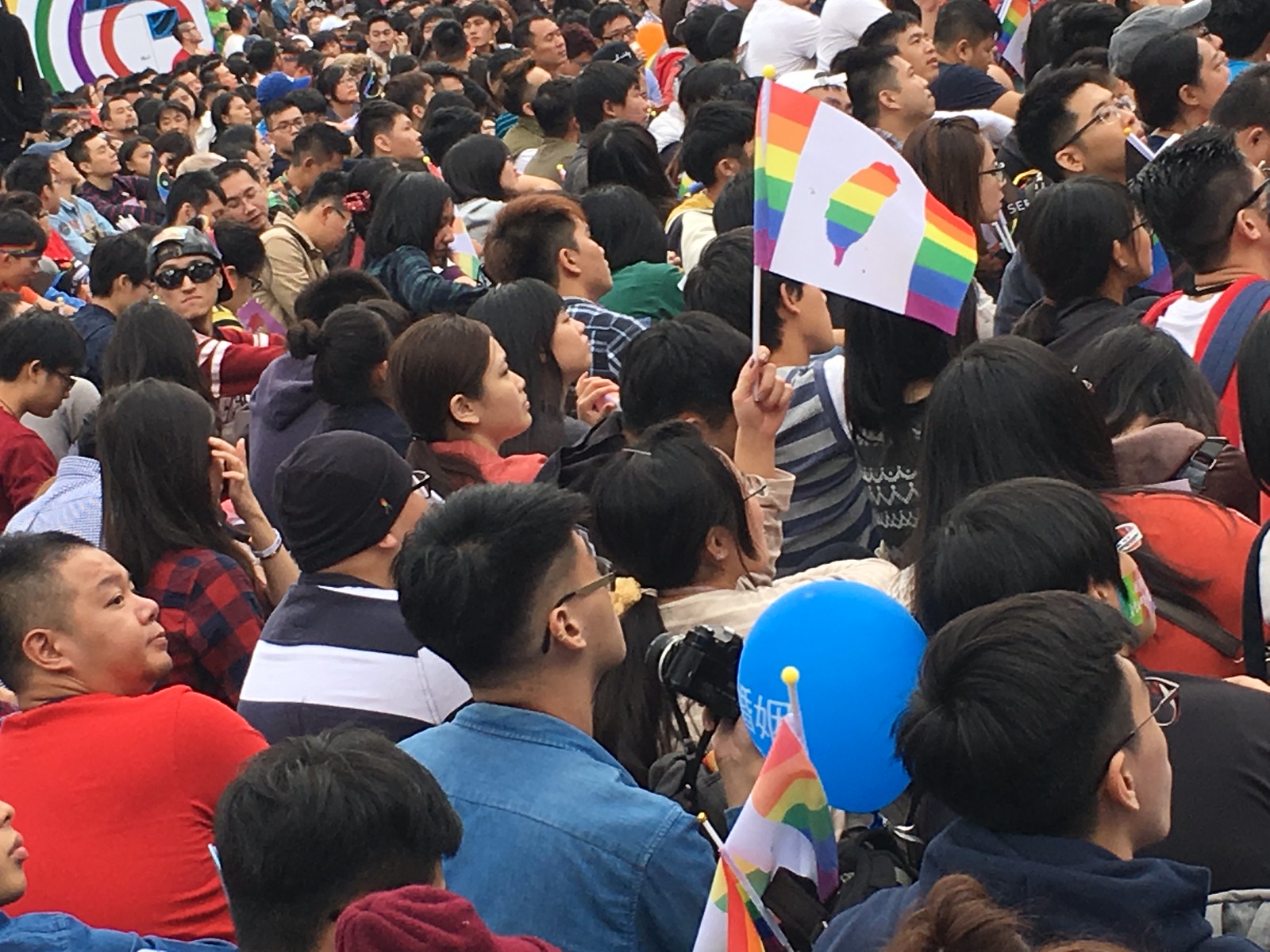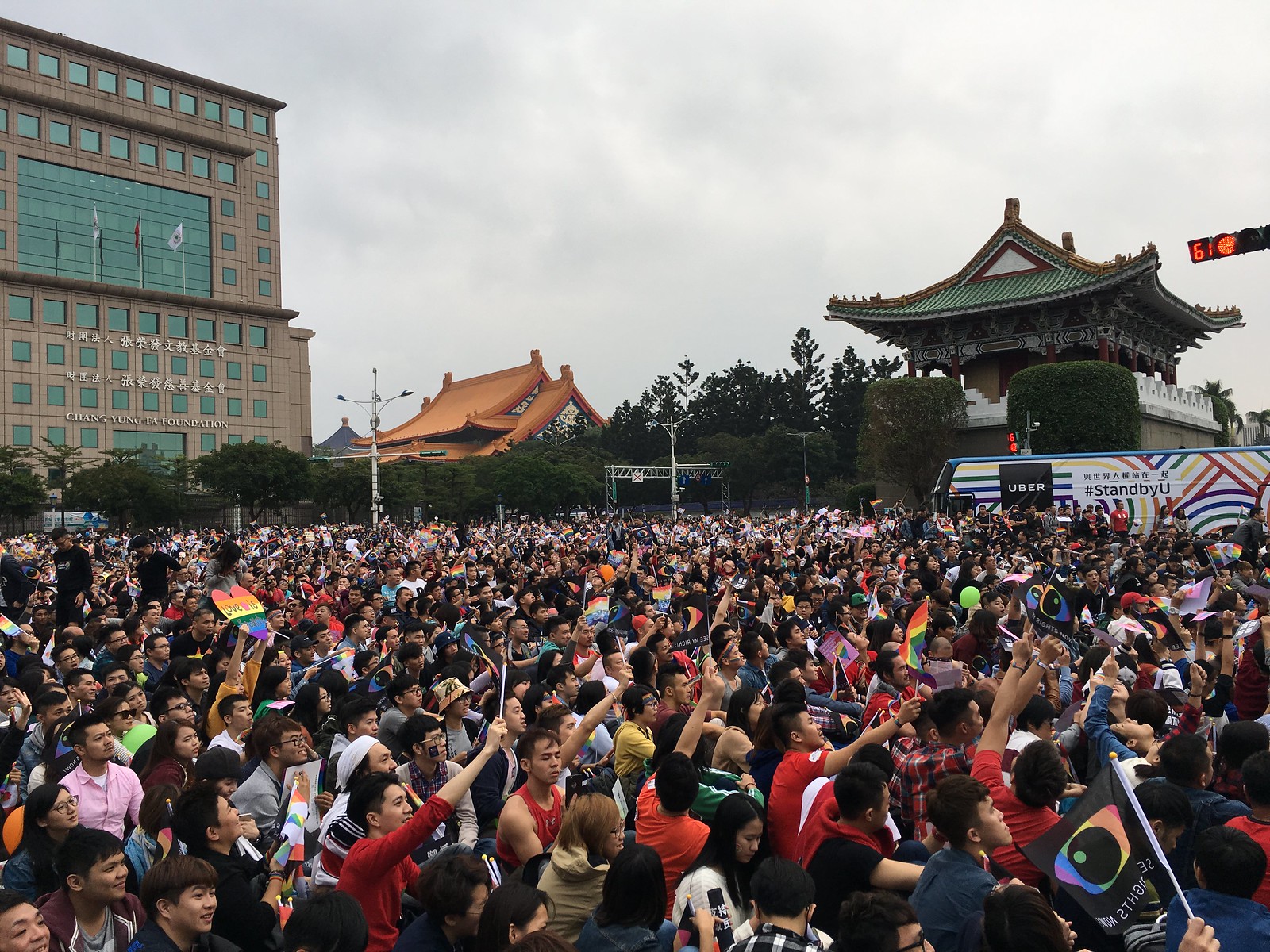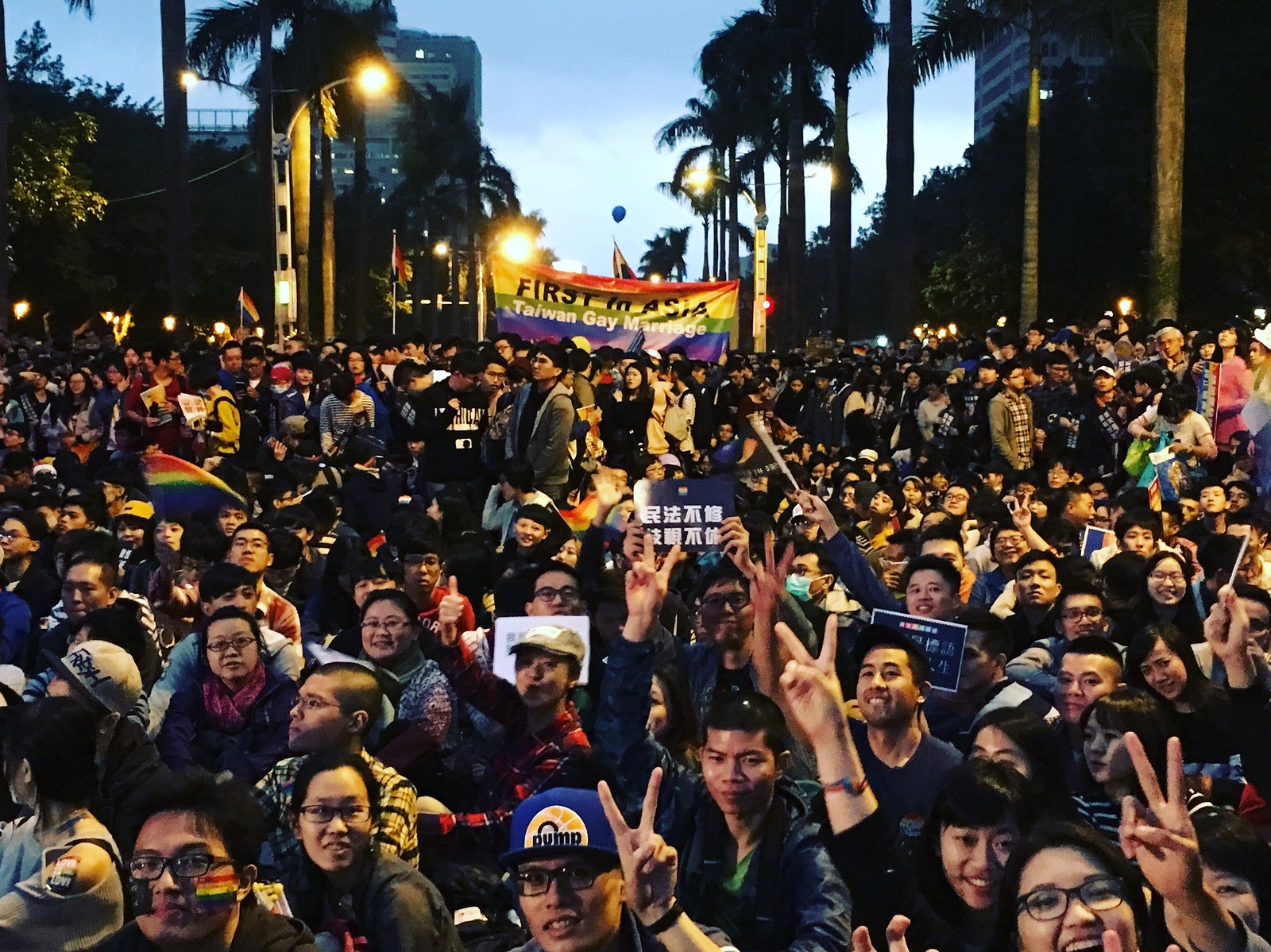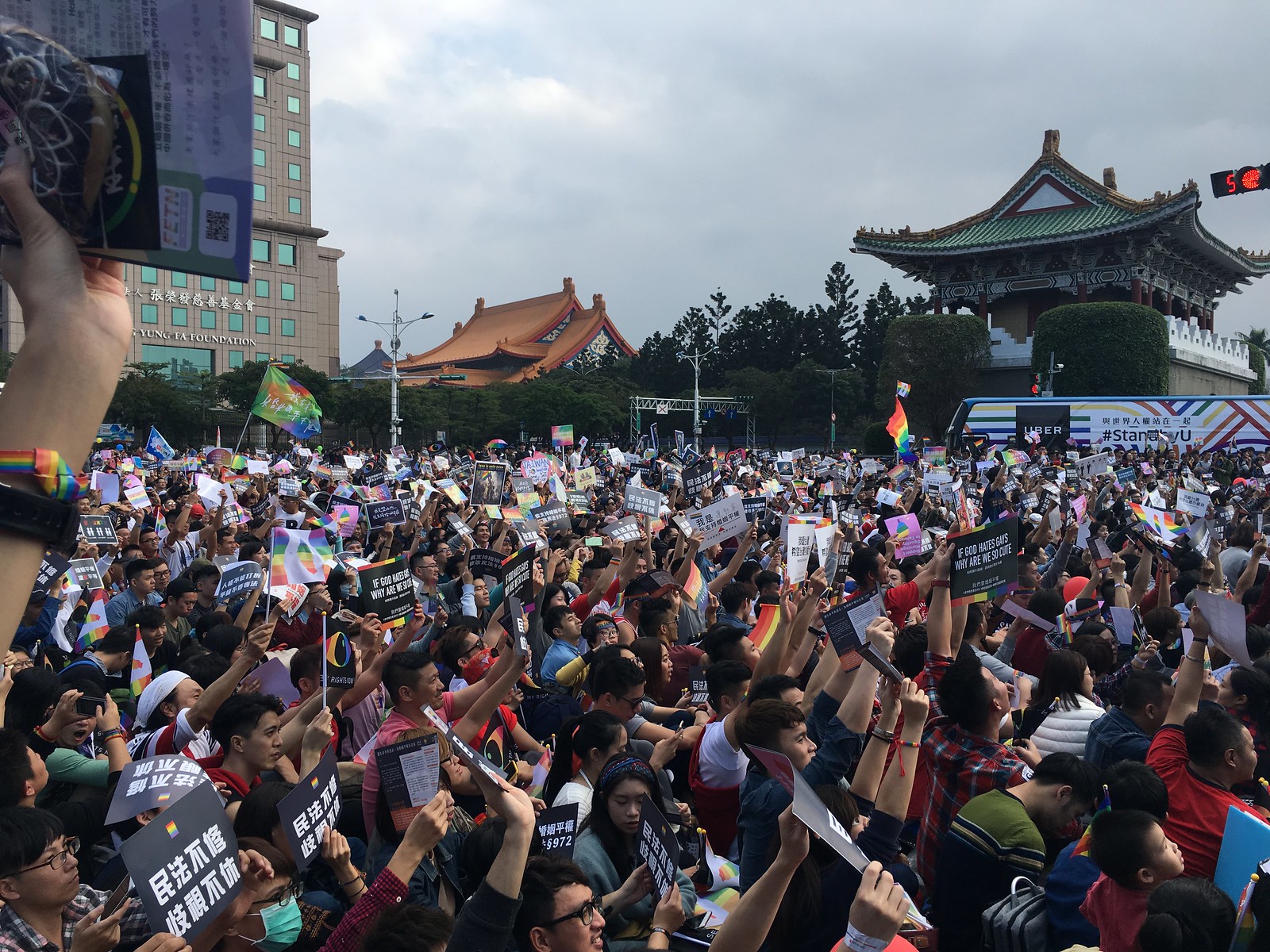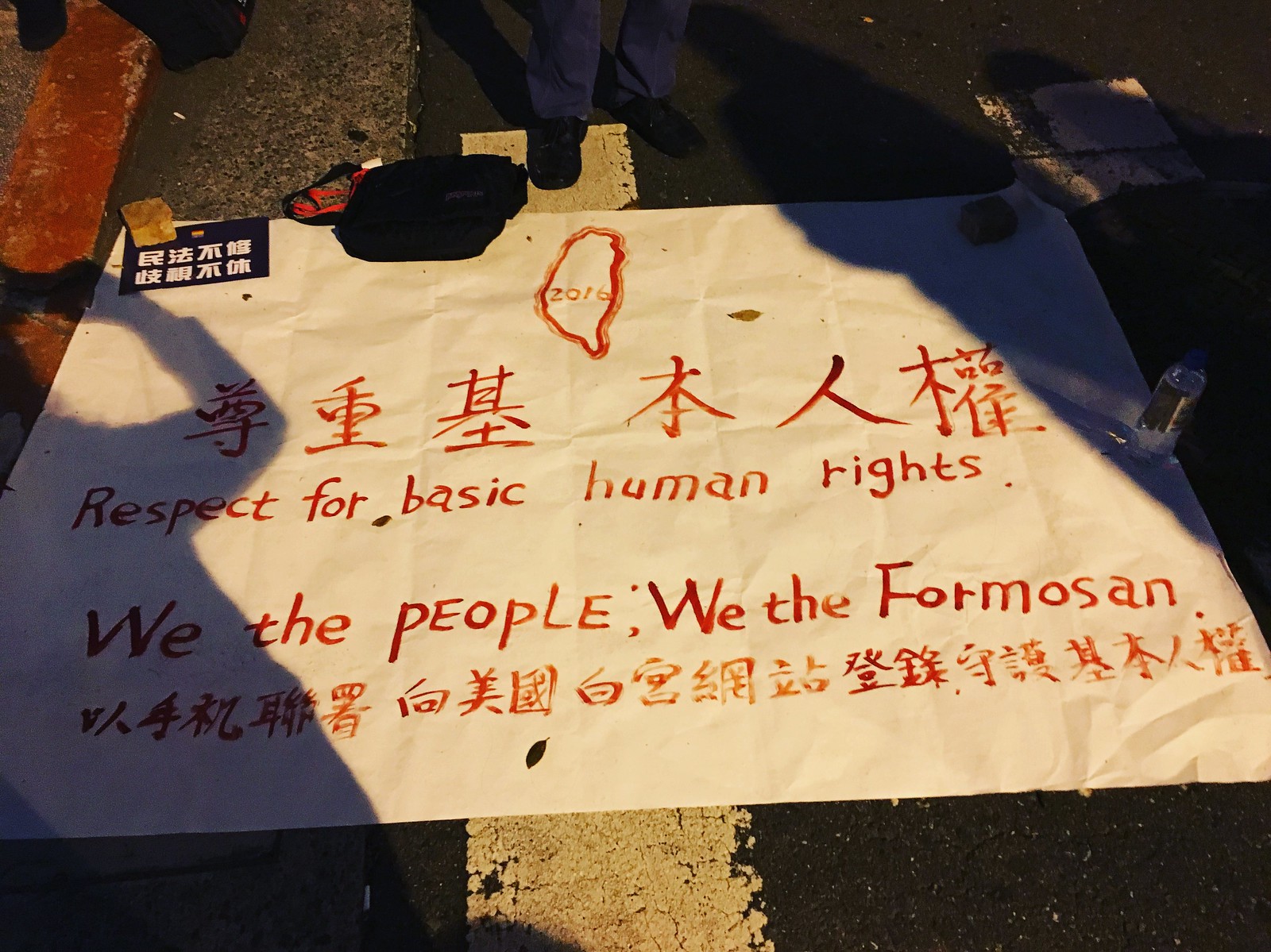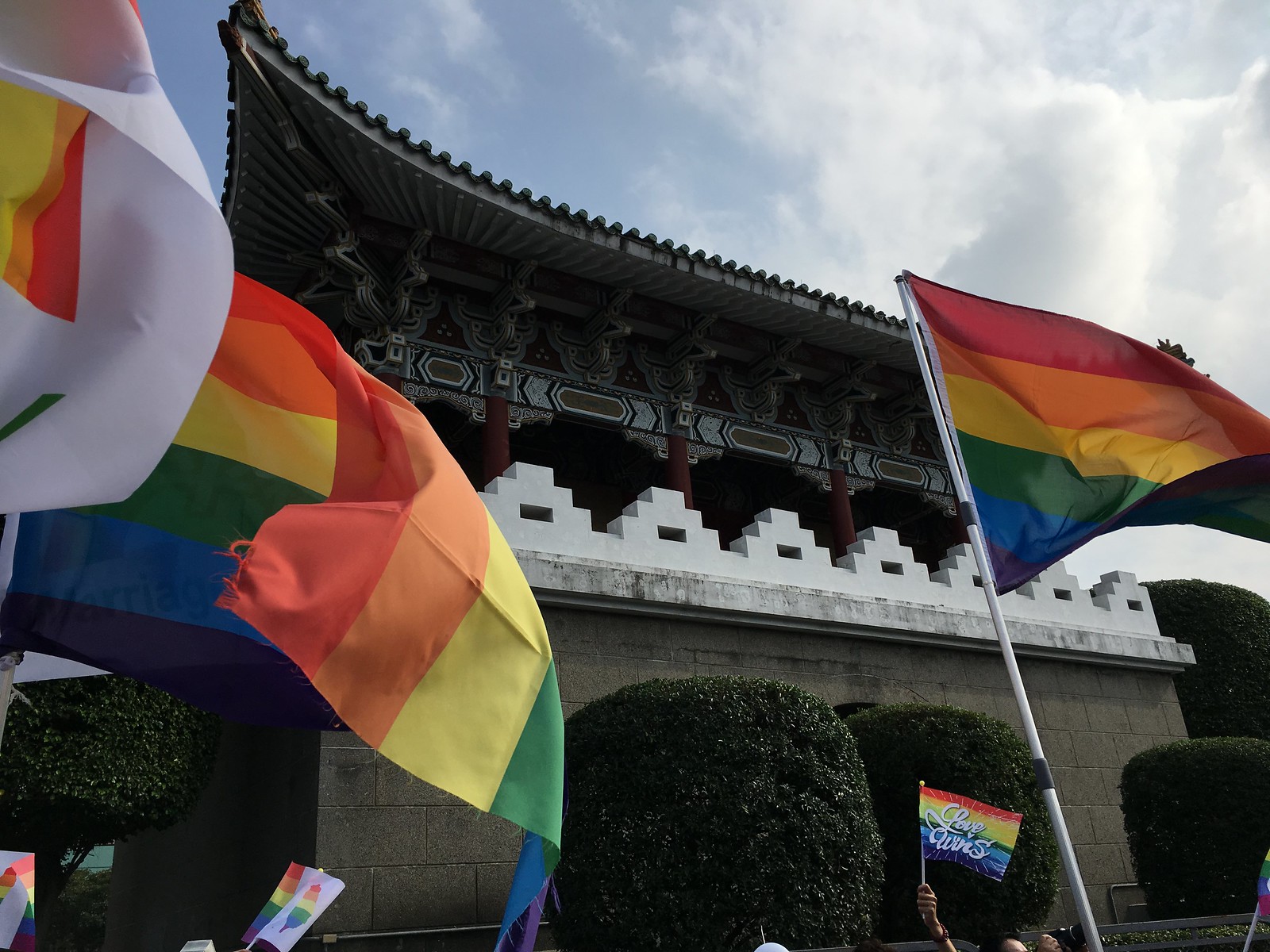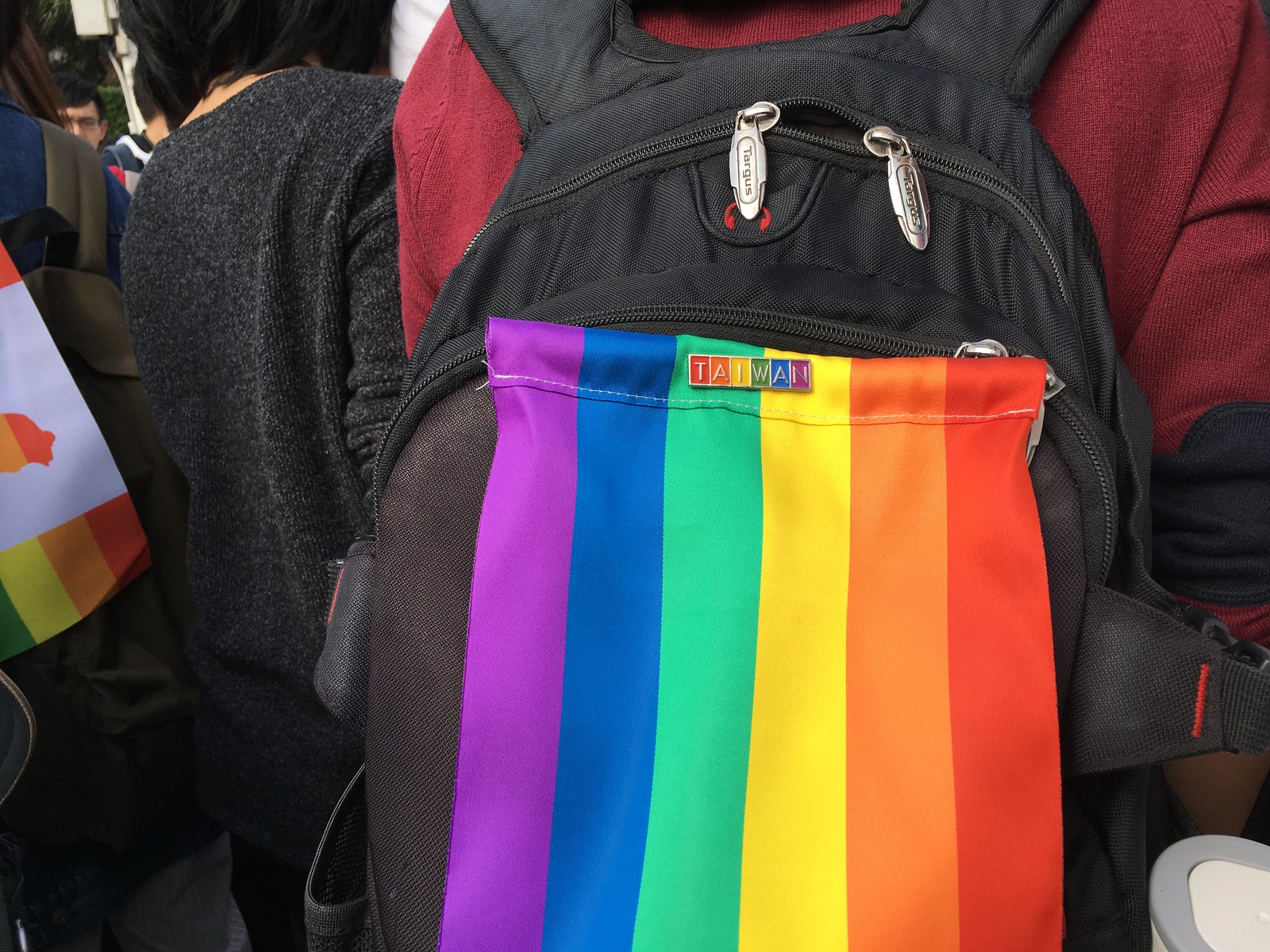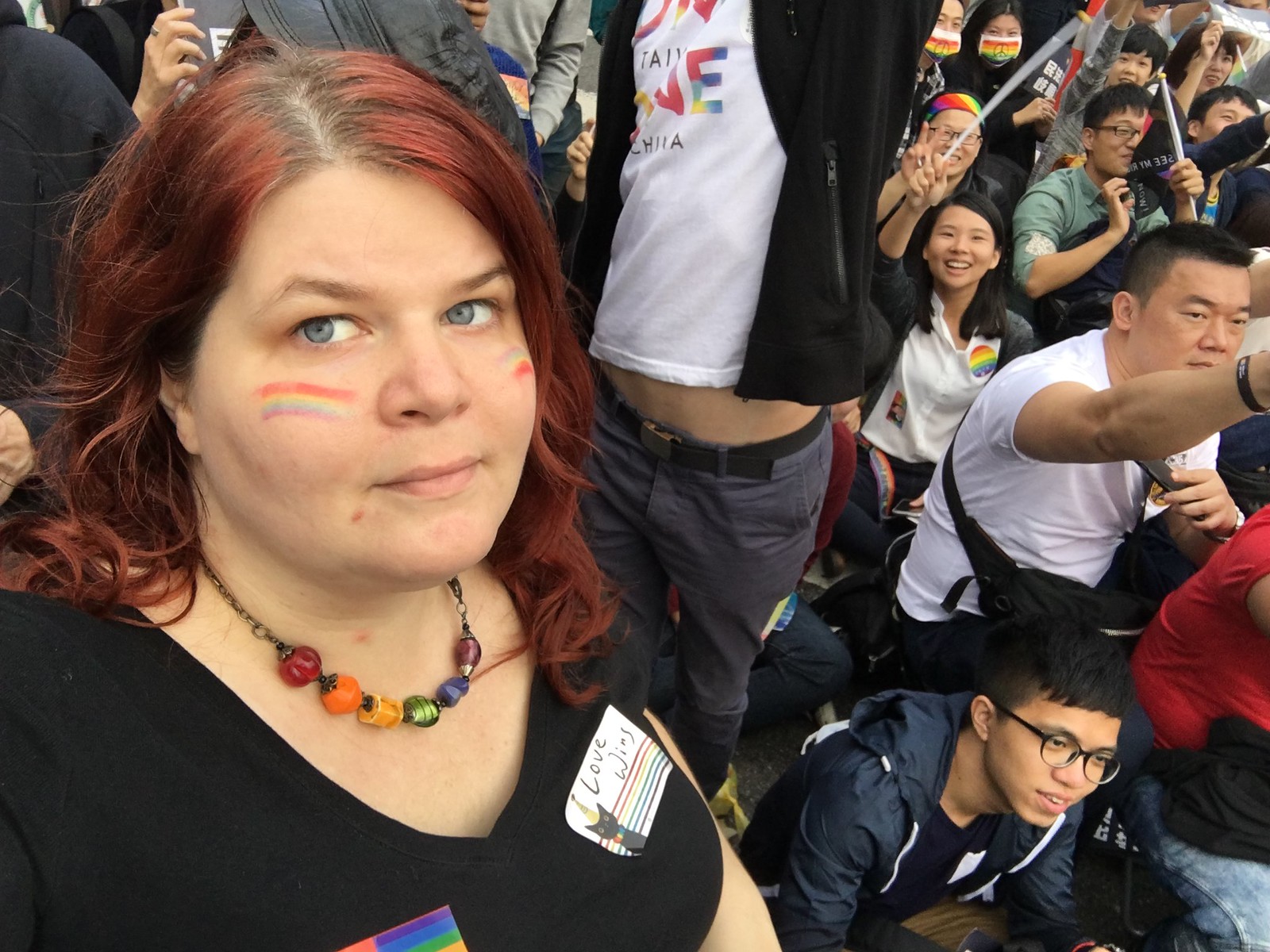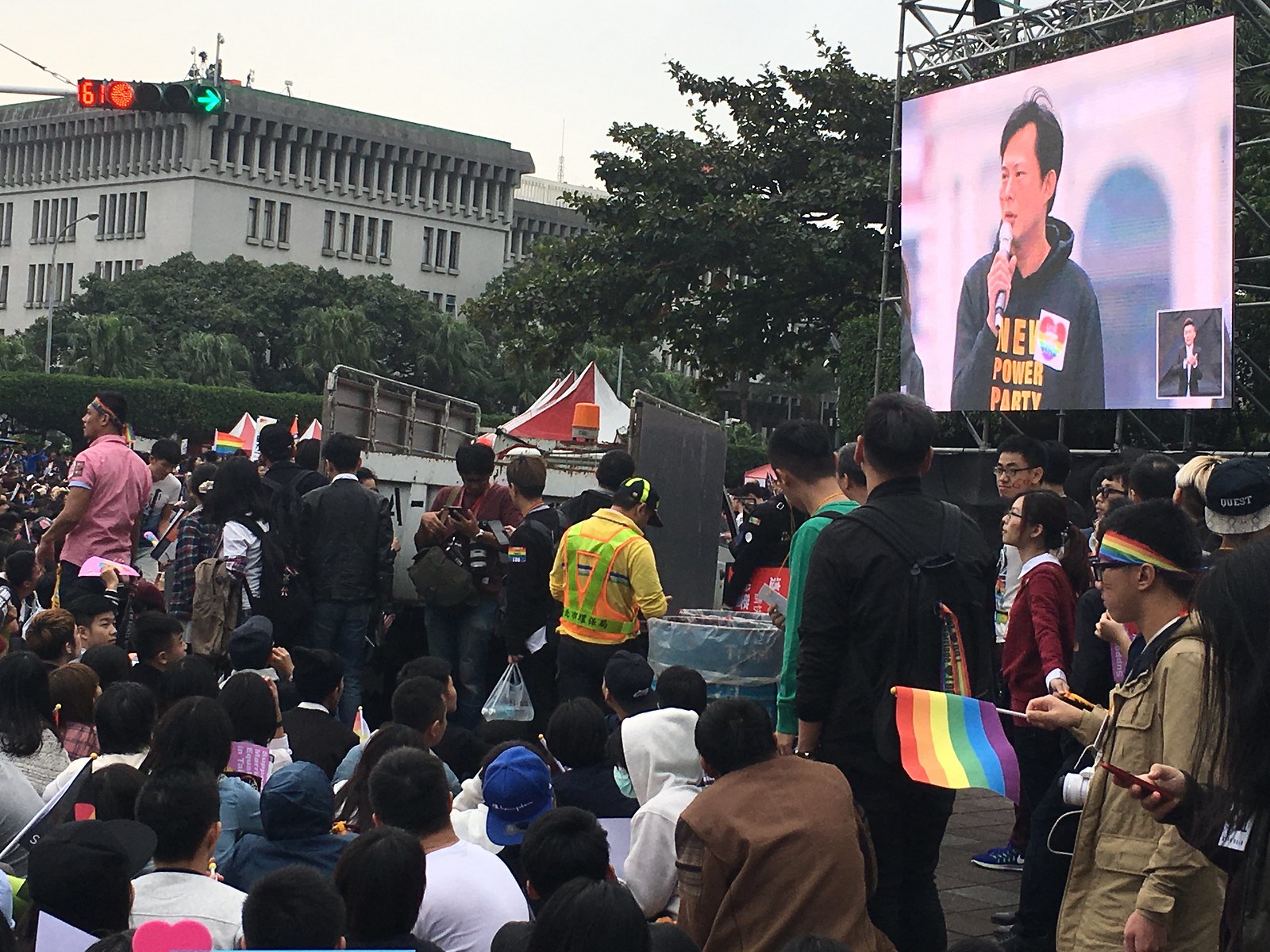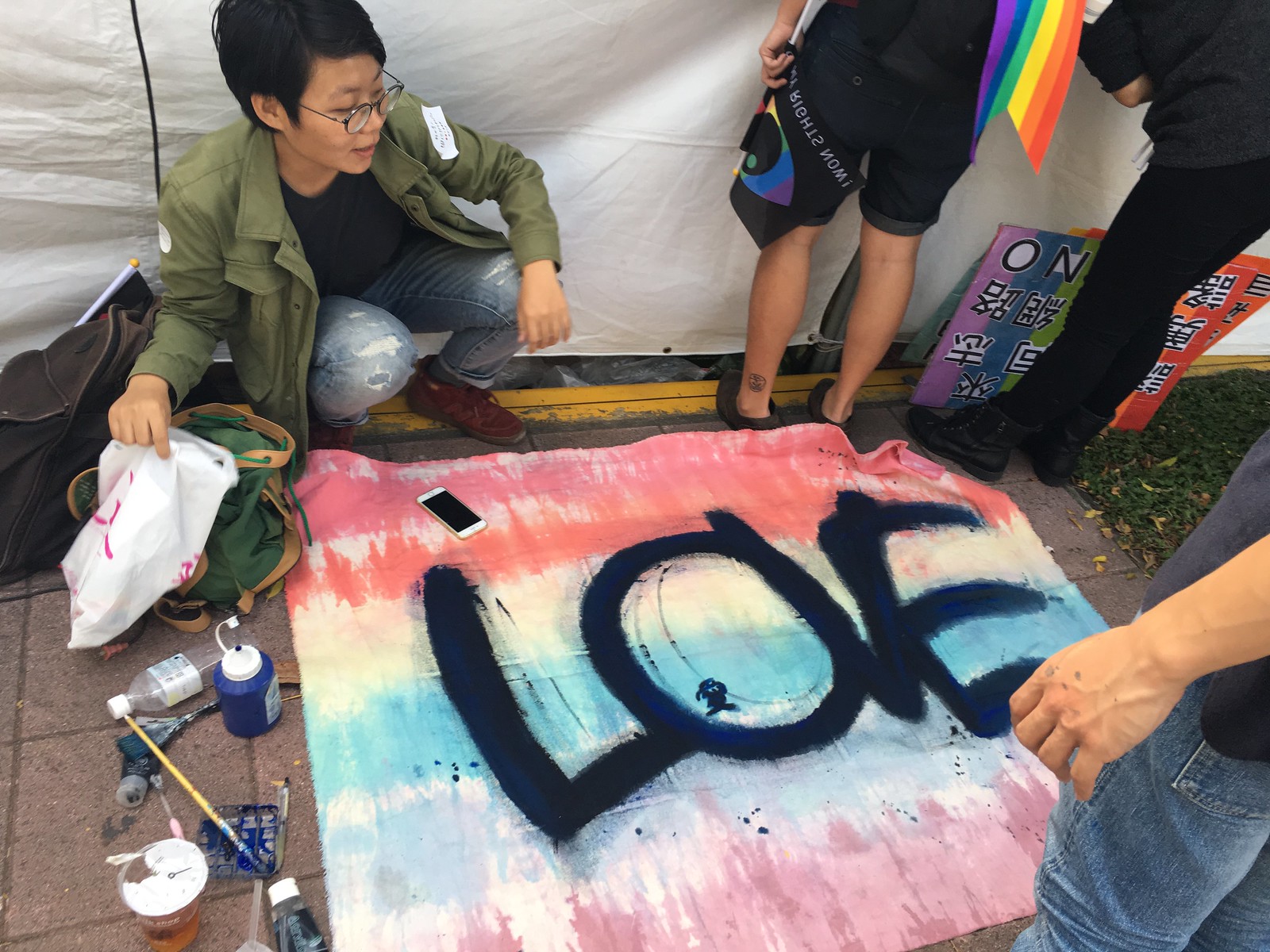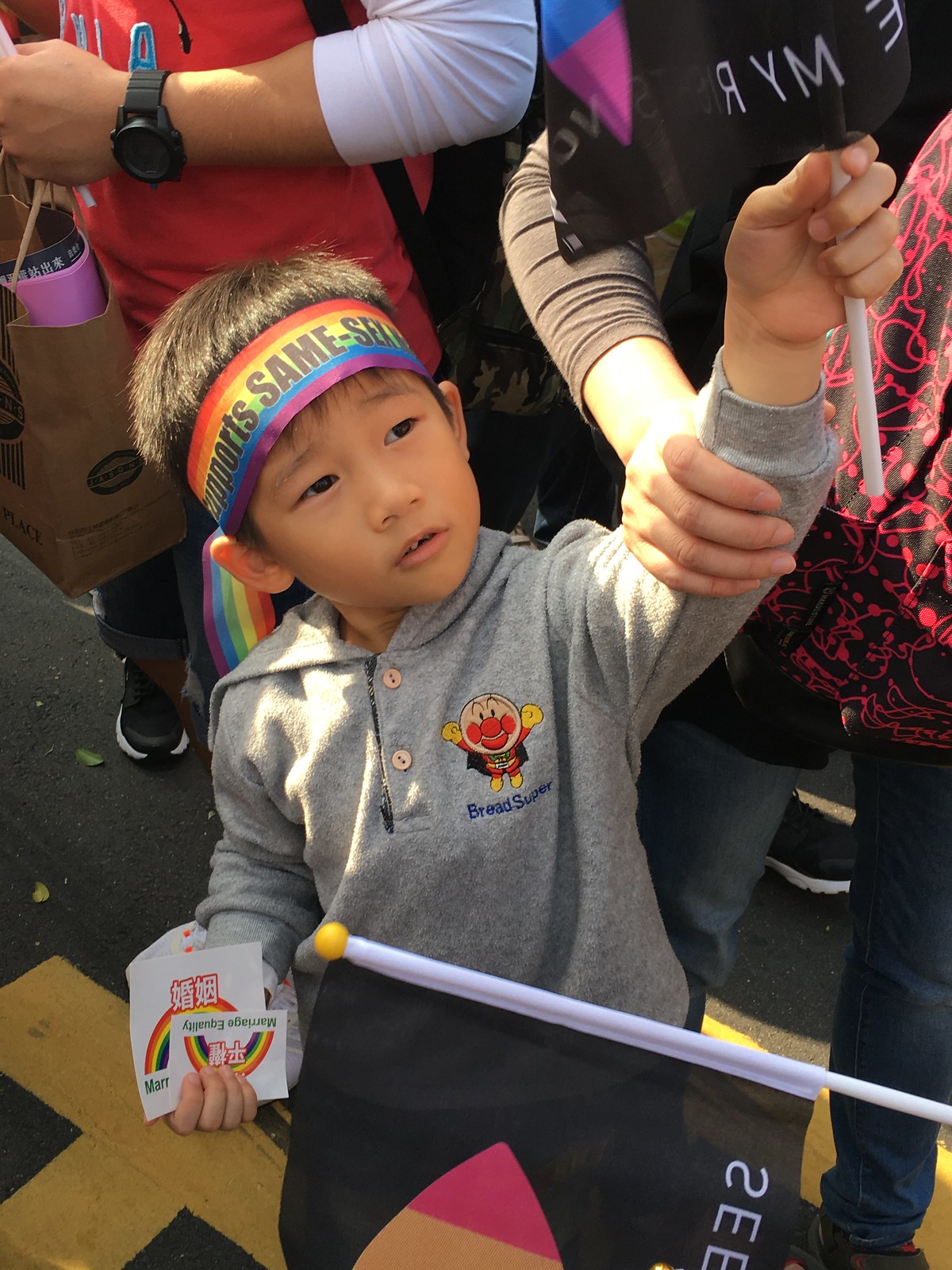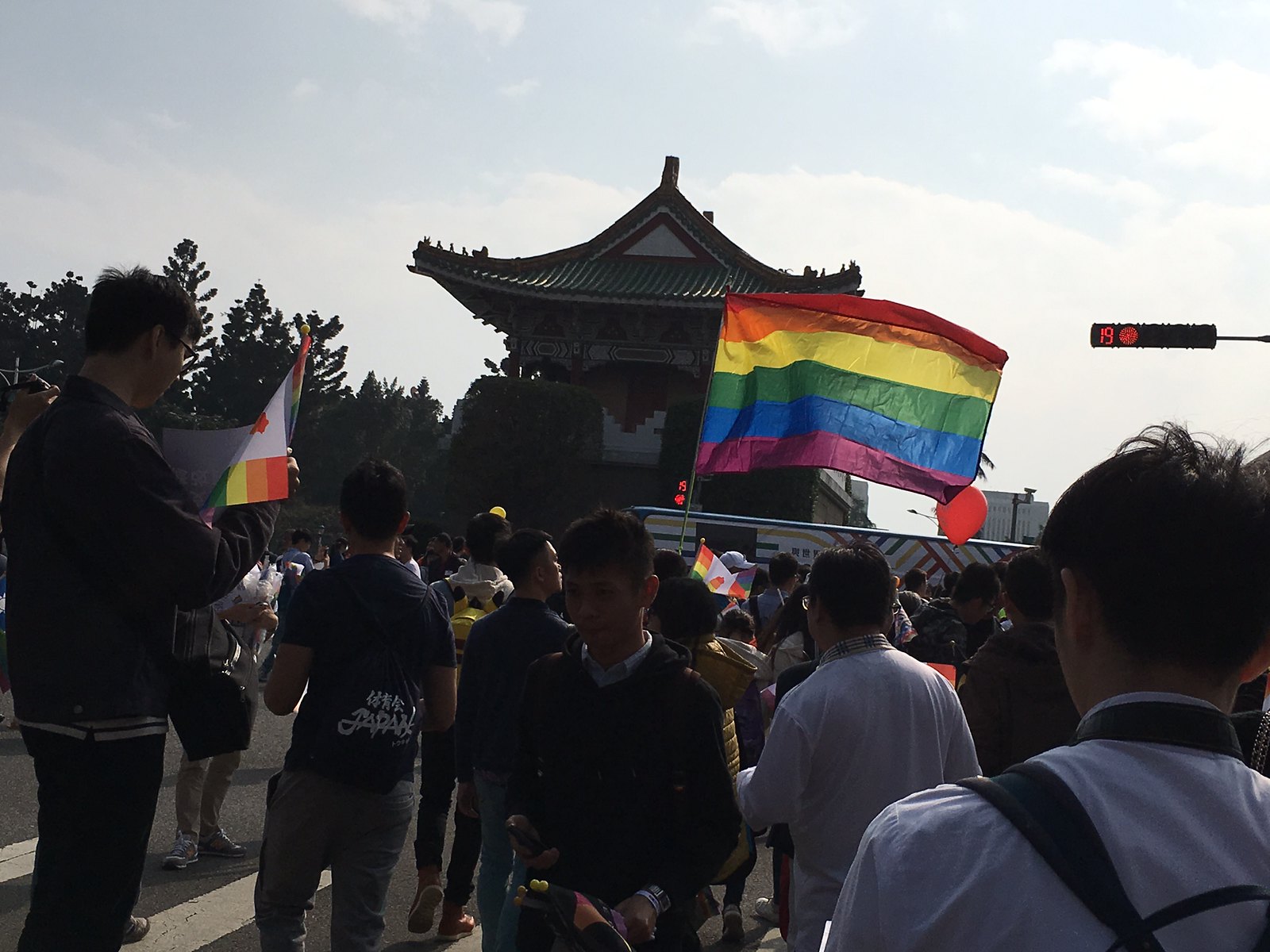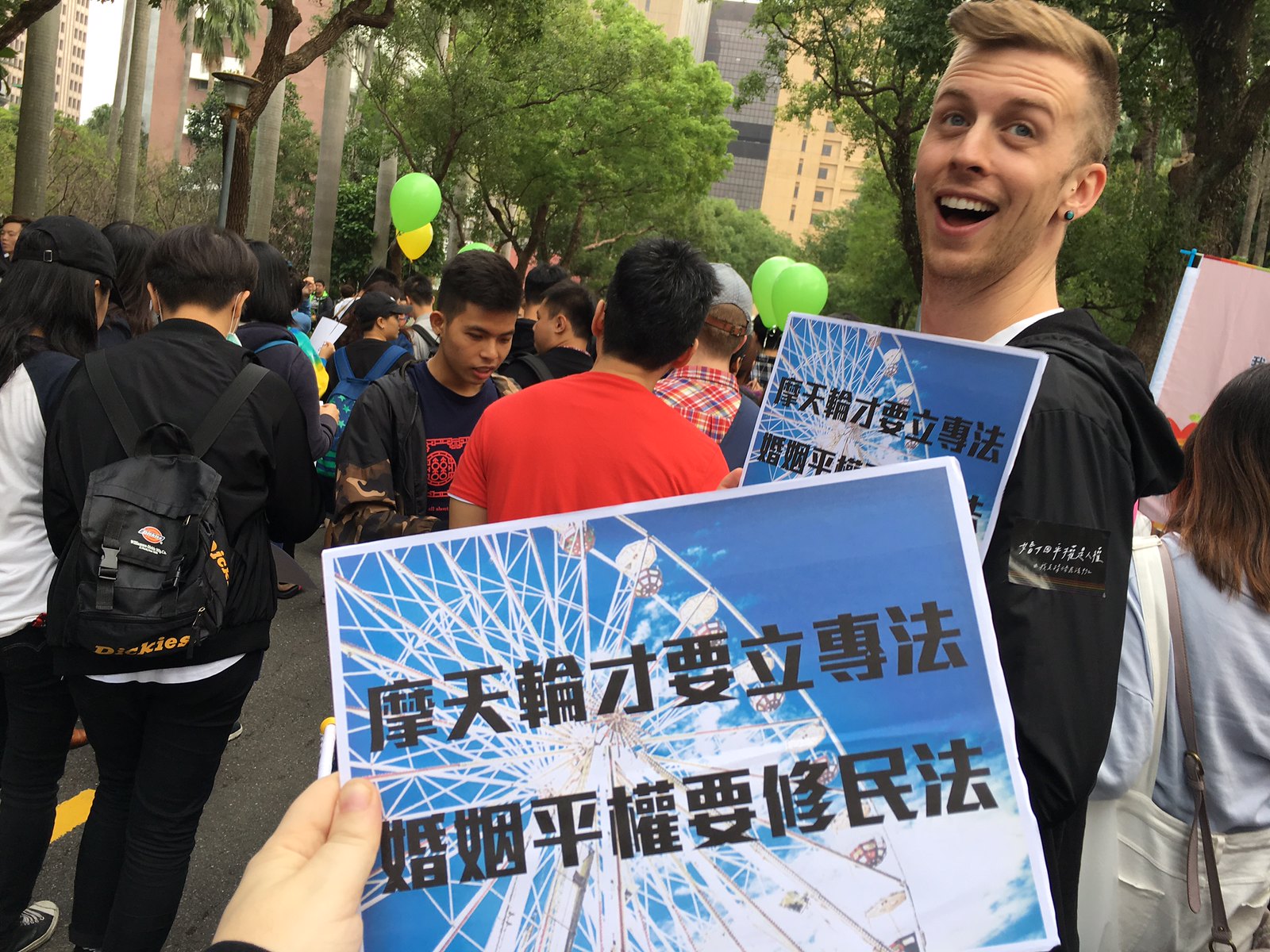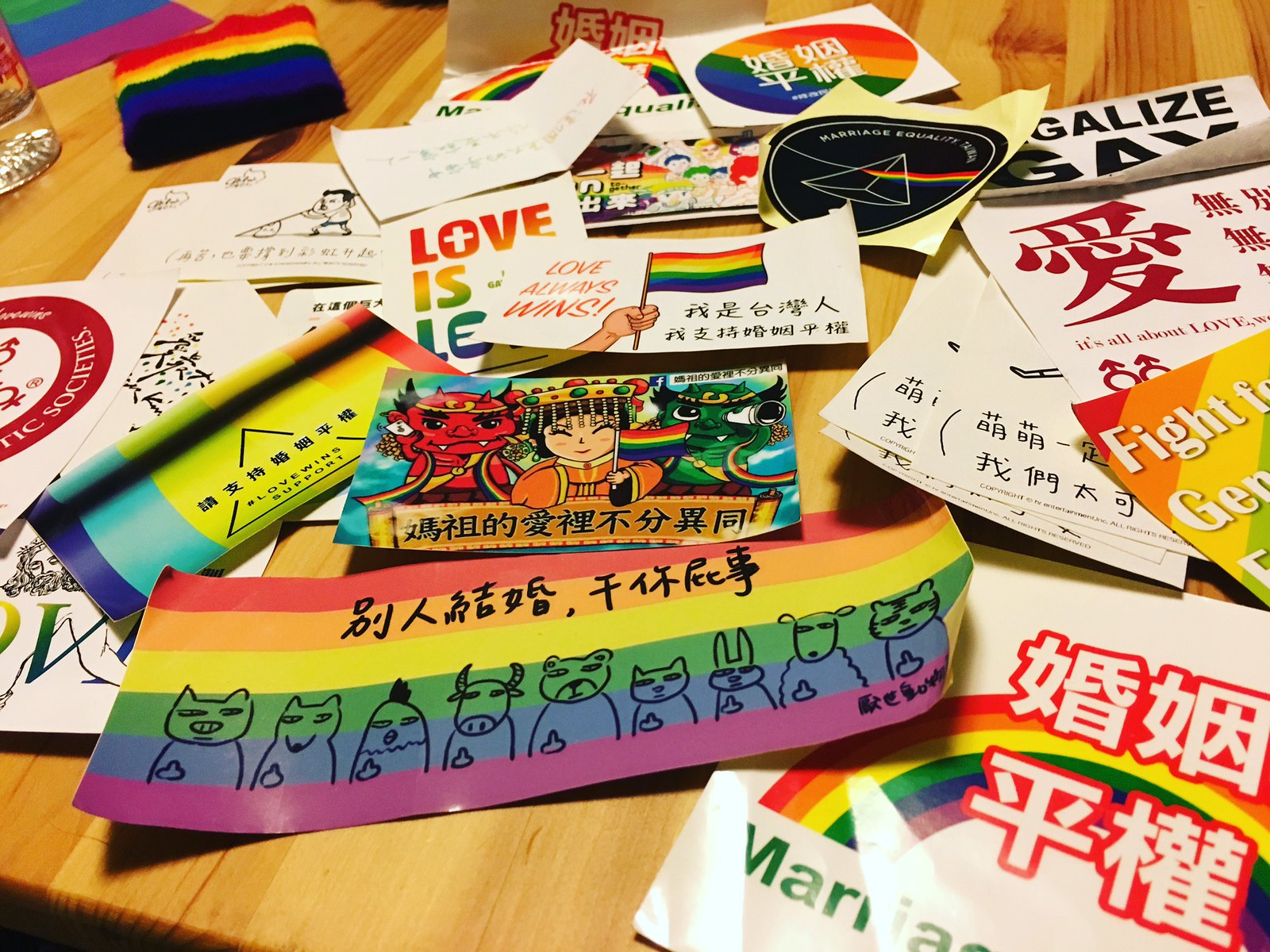 |
| from here |
No, not like that.
Sometimes you just gotta make sure there's no random person who hates you so much they've dedicated a website to it or something. You never know. Turns out there is a guy, but it's not a whole website. That's not nearly dedicated enough and I am disappointed. Come on Internet, you can do better.
Anyway, another thing I learned from this (oh yeah, besides the fact that I was totally in the Liberty Times in 2014 for my ancillary participation in the Sunflower Movement next to my friend holding a sign that says "CIVIL REVOLT" in Chinese and "FORCED TO REBEL" in English, which I also didn't know until very recently, so there's that) is that this editorial I wrote back in October actually got published in the Taipei Times, and I'd had no idea.
So please, enjoy. The gist of it is that the no-dual-citizenship rule for foreigners only (not Taiwanese) is an unfair double standard, if I can't naturalize and maintain my American citizenship due to family obligations I'll leave - though we won't go back to the US if we can at all avoid it - and all this talk about "attracting foreign talent" means nothing if this doesn't change, because the foreign talent doesn't really feel welcome or like they can put down roots here if they can't naturalize:
It has been accepted as true - and there is truth to this - that positions on these sorts of issues are not demarcated by party lines. You would expect the DPP to be more pro-foreigner as they're the ones clamoring about the need to look away from China, but in fact it was the KMT who was set to relax regulations on foreign workers coming to Taiwan. You would think the more progressive New Power Party would be all about this, but they weren't: they actually resisted it. Many people report that it's people generally aligned with the pan-blue side who tend to be more welcoming to foreigners, whereas a lot of DPP types have a nationalistic streak in them. The same can also be said of Western-style liberal-conservative politics.
I'd like to posit, however, that this view is not entirely true, at least not anymore, and it is related to my last post on ideology in Taiwan today, which was more of a personal story.
Both sides have their xenophobic streak. For sure, there are plenty of independence supporters and deep green voters who still, after all these years and so much progress, hold on to some form of Hoklo nationalism (and there are still voters who are not green who accuse the whole party of being that way, which is unfair). On the other side, although this is not as remarked upon quite as much, there is a streak of Chinese chauvinism, of the "5000 years, since antiquity!" variety.
As far as I can tell, unless pertinent changes were made that I am unaware of when the DPP was in power (so, basically, the Chen years), the particular law affecting my ability to naturalize was created not by the Hoklo nationalists but way, way before that, by the Chinese chauvinists. All that time in power, and they have not sought to change it. The first I've heard of anyone seeking to change it has been this bill introduced by prominent figures in the NPP and DPP: the DPP, at least, being exactly the folks accused of 'Hoklo nationalism' and 'xenophobia', and the NPP being the ones against relaxing regulations allowing foreigners to work in Taiwan. They're the ones who basically made the nationality law one based on blood - on race, really - rather than on birth, length of abode or cultural assimilation and participation. They're the ones who seem to have more of an interest in keeping Taiwan ethnically pure, as per their definition (as silly as it is given the ethnic mix in this country to begin with, but that's their "We Are All Chinese but some of us are more Chinese than others" mindset - and with that mindset, if you are not Chinese, you can't be Taiwanese, as Taiwanese, to them, is a subset of Chinese).
Of course, I'd like to stress that these are political issues and general trends and not meant to smear an entire population. There are decent people on both sides, and jerks on both sides. Dehumanizing anyone by taking away their individuality or judging them based on the group they belong to is never okay.
So please, enjoy. The gist of it is that the no-dual-citizenship rule for foreigners only (not Taiwanese) is an unfair double standard, if I can't naturalize and maintain my American citizenship due to family obligations I'll leave - though we won't go back to the US if we can at all avoid it - and all this talk about "attracting foreign talent" means nothing if this doesn't change, because the foreign talent doesn't really feel welcome or like they can put down roots here if they can't naturalize:
I would like to stay in Taiwan, likely forever. However, unless I can reasonably obtain citizenship it is not a viable option.
Under current laws, in order to become a citizen I must give up my original citizenship. This is unacceptable: I have aging family members in my country of origin whom I might have to return to care for indefinitely before eventually returning to Taiwan. The few months I would be able to stay as a Republic of China passport holder might not be enough. I would need work rights in my country of origin in order to support myself. In short, I must retain my citizenship.
Furthermore, it is not a restriction Taiwanese face when applying for dual nationality. They might have another passport, but under the law we may not. This is an unfair and frankly an unacceptable double standard.
Without citizenship, I cannot stay permanently, even as a “permanent resident.” We have the legal right to buy property, but would be hard-pressed to find a bank that would give us a mortgage (I am married, but not to a Taiwanese) and yet landlords balk at renting to the elderly. It is difficult to even obtain a credit card. As we age, social services available to citizens will not be available to us. Finally, I have no political representation: no right to vote, no right to organize a protest.
I work, I pay taxes and I contribute positively to a society that says it wants my contribution. What happens here affects me. This is my home, too.
I am not even a second-class citizen in the nation I call home — I am not a citizen at all, welcome to stay, but never fully allowed to participate.
It has been accepted as true - and there is truth to this - that positions on these sorts of issues are not demarcated by party lines. You would expect the DPP to be more pro-foreigner as they're the ones clamoring about the need to look away from China, but in fact it was the KMT who was set to relax regulations on foreign workers coming to Taiwan. You would think the more progressive New Power Party would be all about this, but they weren't: they actually resisted it. Many people report that it's people generally aligned with the pan-blue side who tend to be more welcoming to foreigners, whereas a lot of DPP types have a nationalistic streak in them. The same can also be said of Western-style liberal-conservative politics.
I'd like to posit, however, that this view is not entirely true, at least not anymore, and it is related to my last post on ideology in Taiwan today, which was more of a personal story.
Both sides have their xenophobic streak. For sure, there are plenty of independence supporters and deep green voters who still, after all these years and so much progress, hold on to some form of Hoklo nationalism (and there are still voters who are not green who accuse the whole party of being that way, which is unfair). On the other side, although this is not as remarked upon quite as much, there is a streak of Chinese chauvinism, of the "5000 years, since antiquity!" variety.
As far as I can tell, unless pertinent changes were made that I am unaware of when the DPP was in power (so, basically, the Chen years), the particular law affecting my ability to naturalize was created not by the Hoklo nationalists but way, way before that, by the Chinese chauvinists. All that time in power, and they have not sought to change it. The first I've heard of anyone seeking to change it has been this bill introduced by prominent figures in the NPP and DPP: the DPP, at least, being exactly the folks accused of 'Hoklo nationalism' and 'xenophobia', and the NPP being the ones against relaxing regulations allowing foreigners to work in Taiwan. They're the ones who basically made the nationality law one based on blood - on race, really - rather than on birth, length of abode or cultural assimilation and participation. They're the ones who seem to have more of an interest in keeping Taiwan ethnically pure, as per their definition (as silly as it is given the ethnic mix in this country to begin with, but that's their "We Are All Chinese but some of us are more Chinese than others" mindset - and with that mindset, if you are not Chinese, you can't be Taiwanese, as Taiwanese, to them, is a subset of Chinese).
Of course, I'd like to stress that these are political issues and general trends and not meant to smear an entire population. There are decent people on both sides, and jerks on both sides. Dehumanizing anyone by taking away their individuality or judging them based on the group they belong to is never okay.
This also reflects my personal experience: it may not be politically correct to say this, but the honest truth is that I have felt more welcomed in Taiwan by people I could reasonably assume identified as pan-green, as a general trend. It's not that those more likely, in my estimation, to identify as pan-blue aren't also hospitable, it's that the welcome from them is more of host to guest rather than person who lives here to another person who lives here. As I've written before, in Tainan I was ushered into a taxi by a guy who ticked off every Hoklo stereotype - betel nut, spoke Taiwanese, blue plastic sandals - with "you're the next generation of Taiwanese" (妳是台灣的第二代!), whereas everyone and their Mandarin-speaking grandmother in Taipei seems to love asking me when I'm "moving home", as though home could not possibly be Taiwan. They don't mean to be insulting, but their base assumptions become clear, with that one question.
This kind of makes sense: the Third Force (student activists and other 'colorless' progressives) tends to be very open to foreigners in Taiwan as they're more international in their outlook, but there's a streak of Bernie Sanders-style labor protectionism that is baffling at best (Bernie was wrong about immigration too), and somewhat hypocritical at worst. However, they've moved beyond identifying Taiwaneseness as something ethnic or racial - which again makes sense because all attempts at arguing this are so ridden with flaws, and scream of an ethnocentrism that is discomfiting in the 21st century - and most of the DPP seems to be getting on board.
This kind of makes sense: the Third Force (student activists and other 'colorless' progressives) tends to be very open to foreigners in Taiwan as they're more international in their outlook, but there's a streak of Bernie Sanders-style labor protectionism that is baffling at best (Bernie was wrong about immigration too), and somewhat hypocritical at worst. However, they've moved beyond identifying Taiwaneseness as something ethnic or racial - which again makes sense because all attempts at arguing this are so ridden with flaws, and scream of an ethnocentrism that is discomfiting in the 21st century - and most of the DPP seems to be getting on board.
A friend noted that the difference seems to be that, while both sides have their ethnic nationalist streaks, one (the pan-greens) seem to be more open to progress and more willing to change, whereas the other seem, well, not to.
I tend to agree, at least broadly - I am sure I could come up with some contradictory examples - and would say this is why the ideological split seems to be shifting as it is.
The same thing seems to be true of marriage equality. The two issues - Taiwanese identity and marriage equality - seem to be unrelated. There are plenty in the DPP who support one but not the other, and a precious few in the KMT who are aligned in the opposite direction. But when one side has been turning more and more liberal, while the other clings to the past, it makes sense that this divide too would be shifting. I hesitated at first to post this video, and it may well be creatively edited, but I do think it makes a point. Supporters of Taiwanese independence are slowly but surely moving towards supporting a country based on common values - and those values include freedom, democracy and acceptance. Who better to slowly turn towards support of marriage equality? Considering their support of the 'colorless' social activists, who are almost universally pro-equality, it also makes sense that this ideal would bleed from one to the other.
From this, it also bleeds into tactics. Yes, the anti-equality protesters tried to use Sunflower tactics to climb the walls surrounding the Legislative Yuan (ha ha), but by and large, in fact the strategies they employ are similar more to the pro-unification gangsters: starting fights, threatening journalists, smoke bombs, aggressiveness bordering on, and sometimes turning into, violence.
I can't be, for example, the only person who noticed similarities between the aggressiveness of anti-equality demonstrators at recent rallies and the aggressiveness of anti-independence/pro-unification gangs at today's self-determination forum, as well as in the past. I would not be at all surprised to learn there was crossover between the two.
I'd like to end with this: all of this points to a shift in Taiwan where the old truism that liberal and conservative social ideals do not necessarily fall along party lines may no longer be true, and we may well be left with a two-party system, one which is socially conservative (or at least more so), and one which is more traditionally socially liberal (again, at least more so). That means bills addressing social issues may no longer have much of a shot at bipartisan support, and that - oh heavens I hope not - campaigns will start hammering social issues and 'values' as they do in the US.
Considering what that's done to the US, if I am correct, I cannot say that it is a good thing.



